future of the pin
it is now fashionable to invent a smartphone-based solution for every task; doing so often throws up new complications, which engineers readily fix by introducting additional layers of technical complexity. before finding new ways to replace every system with a phone\app, i suggest decomputing the task: distilling it down to its components, and playing with simple systems as a starting point for further development.
today, bank cards and merchant machines, both, are being replaced by smartphones. while phones are more convenient and ubiquitous, they are less trustworthy (for example: other apps on a phone may spy on an entered pin or transmitted data, etc).
in replacing a bank-card with a smartphone, fin-tech companies are blurring the line between personal identity and financial identity, oft confining a person’s financial freedom to biometrics or other idiosyncratic parameters. further, the use of biometrics for id-ing a person is dangerous (and questionable), because biometrics can not be modified or replaced easily once when they are compromised.
this project was produced to instigate conversation on these points, so that fin-tech companies don’t blindly transport the existing chip-&-pin system onto smartphones.
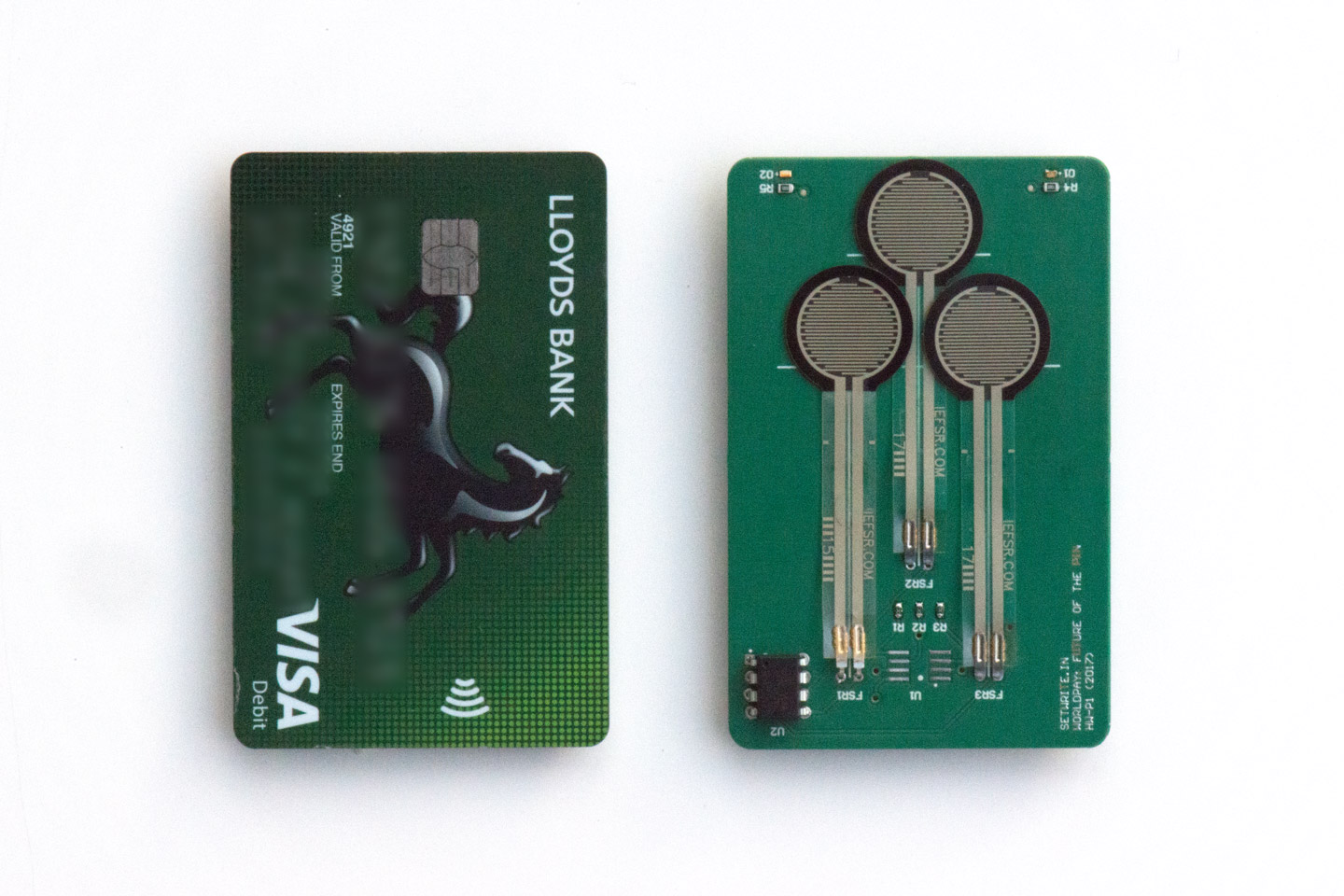
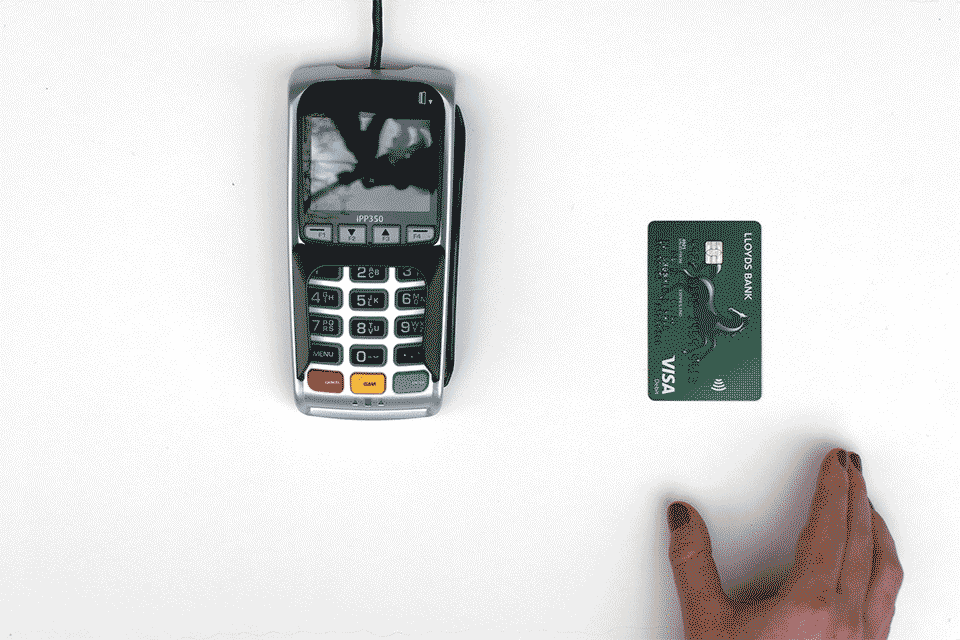
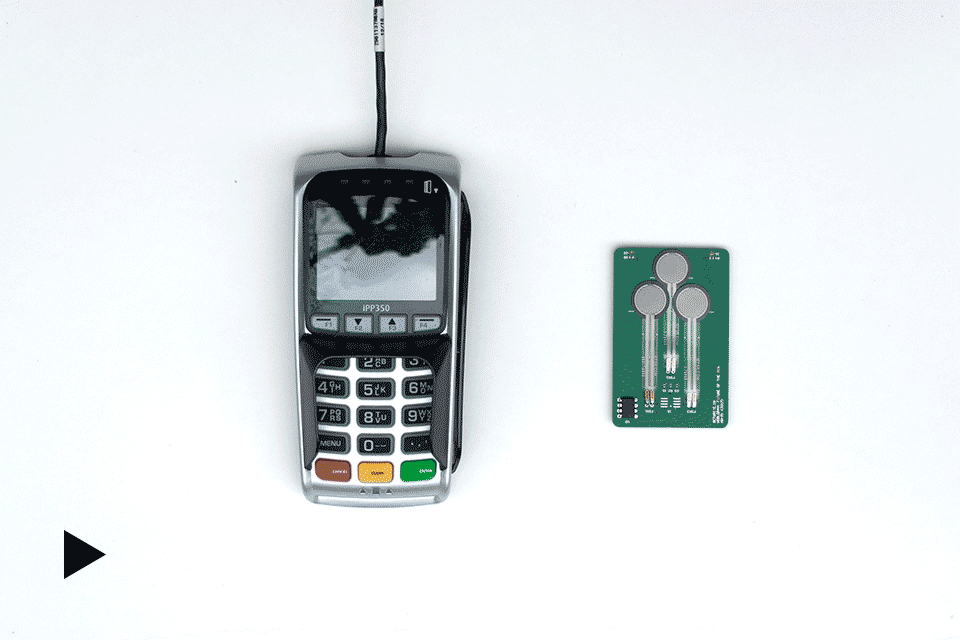
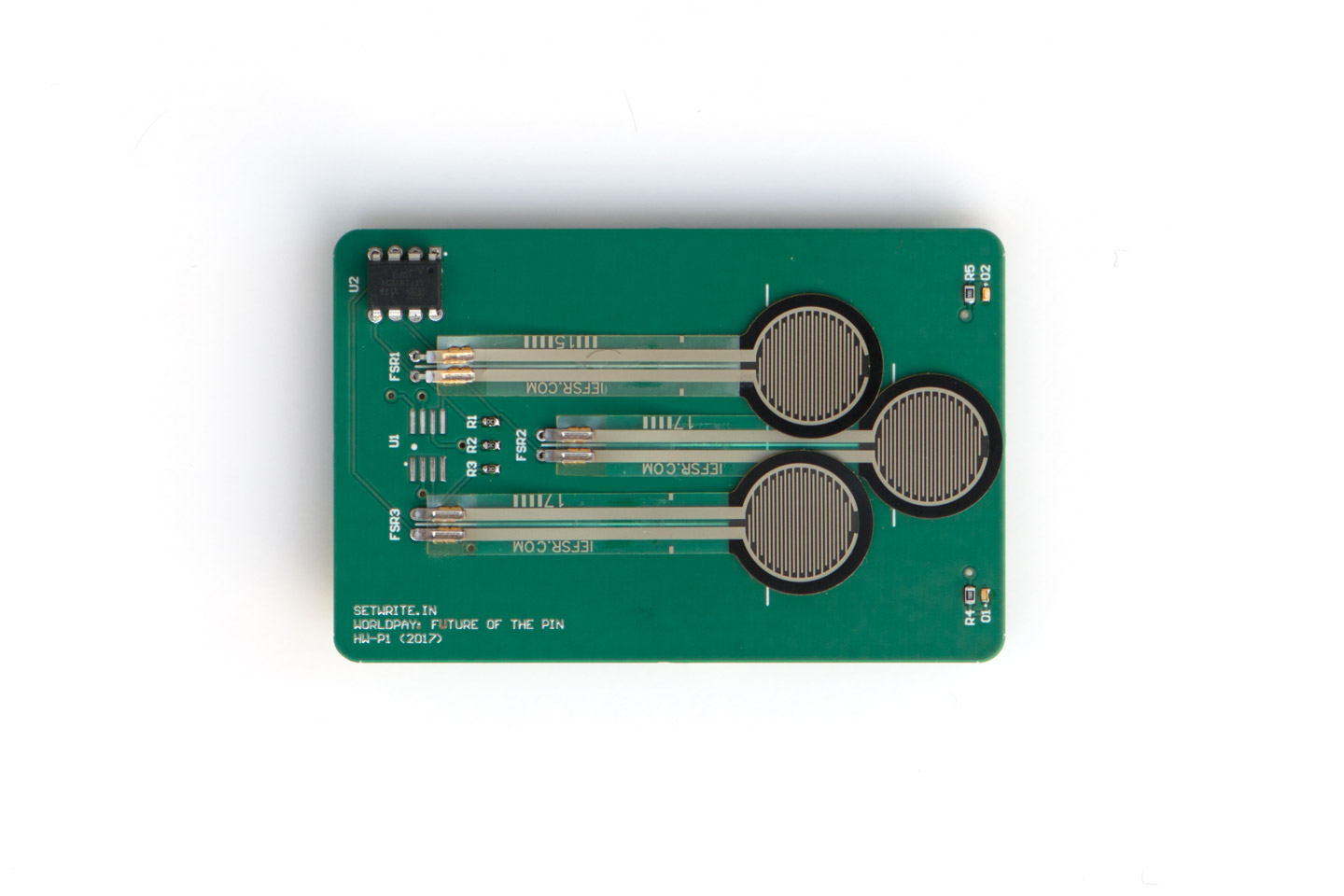
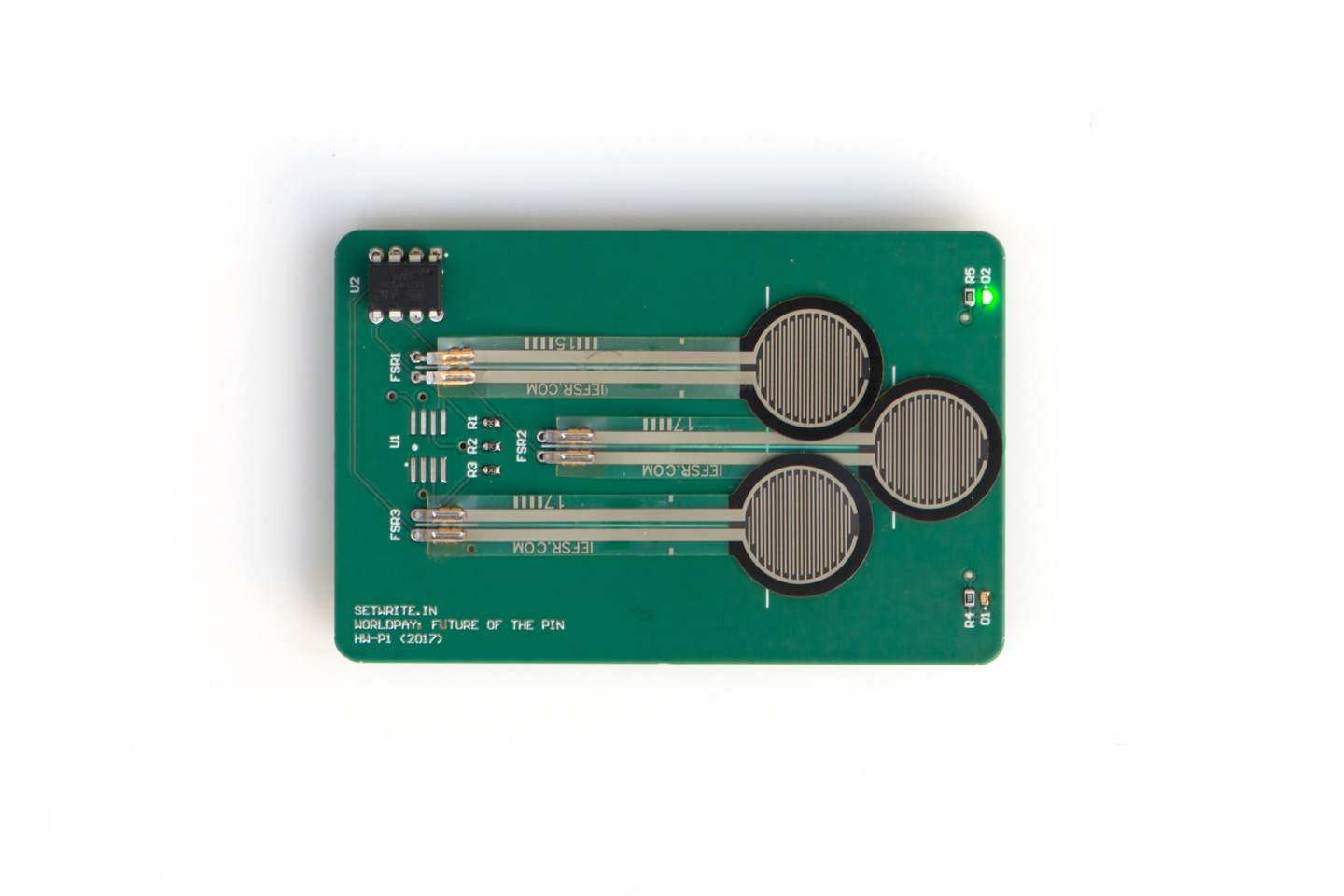
work: concept, design, electronics, firmware.
in response to a brief from worldpay and austin houldsworth.
and thanks to: robert toth’s technical nous ; anna unger’s hands.